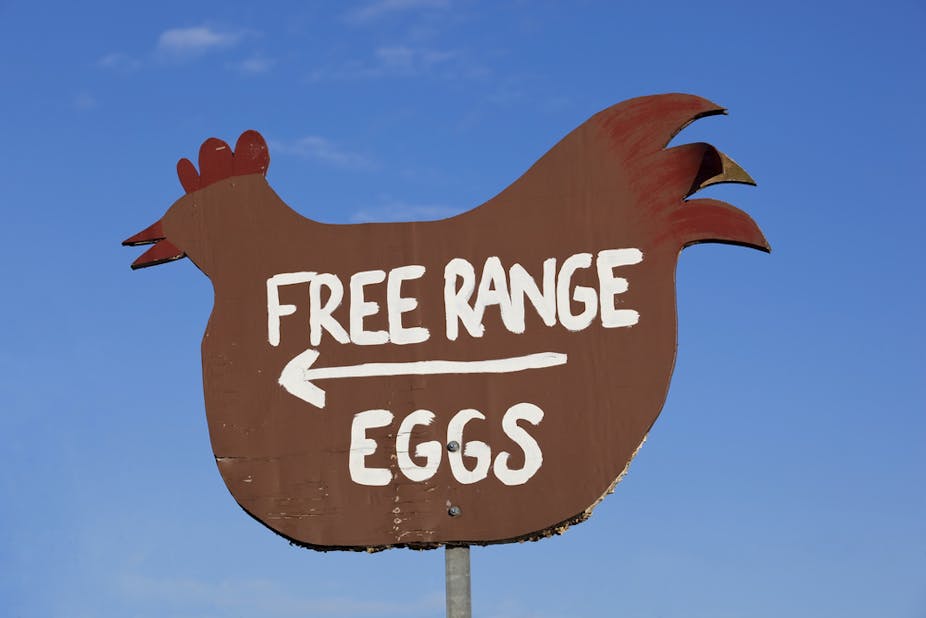On November 2, the Australian Competition and Consumer Commission (ACCC) issued an initial assessment knocking back a certified trademark application by the Australian Egg Corporation Limited (AECL). The decision is here.
The key element of the trademark relates to the use of the term “free range” for eggs. The supporters of the trademark have been fighting back. In my view, the ACCC is right and the AECL is wrong.
There are currently a range of uses of the term “free range” for advertising eggs to customers. The words mean something. The benchmarks used by the ACCC were the dictionary definition of the words, existing standards put up in both legislation and by other farming bodies, and the submissions to the assessment. Let’s ignore the latter and assume (as The Land article does) that these are all biased chook-huggers.
The standard of stocking in the AECL trademark is given in paragraph 46 of the ACCC initial assessment:
Outdoor stocking density can be up to 20,000 birds per hectare
This number is significantly more than other approaches to the term “free range”. There is a model code of practice that has the stocking density at 1,500 birds per hectare. There is Queensland legislation that states:
A person must not keep more than 1500 laying fowl in a hectare in the outdoor range of a free range system.
The same stocking density for free range eggs is incorporated into legislation currently before the NSW and SA parliaments. There are other standards set by bodies such as the RSPCA and the Victorian farmers federation as well as overseas bodies. Indeed, of twelve other comparisons, the highest number for stocking density reported by the ACCC is 2,500 hens per hectare for ‘free range’. So the AECL is out by a factor of eight!
The ACCC concludes at paragraph 142:
The ACCC is therefore concerned that the AECL Standards governing free range egg production … has the potential to mislead or deceive consumers.
Damn right!
The AECL’s attempt to weaken the meaning of the term “free range” is just one example of an all-too-common practice. Individually, sellers have an incentive to devalue words in their promotions in order to raise sales. This can lead to a race to the bottom, where the meaning of the words gets reduced until they are meaningless. But this harms all sellers as devaluing language reduces the ability to communicate with customers. That is why we have standards and these standards benefit sellers as a whole, even if individually they would like to ‘cut corners’ on language.
So the party that should really feel aggrieved by the AECL attempt to devalue the term “free range” is the egg farmers themselves. If the AECL standard is approved, then it simply means that the term “free range” is devalued. Egg producers who want to distinguish their product will have less ability to do so and there will be a race to the bottom in terms of production quality and price. And turning eggs back into a commodity product does not benefit egg farmers.
Egg producers should be thanking the ACCC for protecting their standards. And they should be telling the AECL in no uncertain terms to “back off” from devaluing their ability to differentiate their product.
An earlier version of this article was originally posted at Core Economics.

